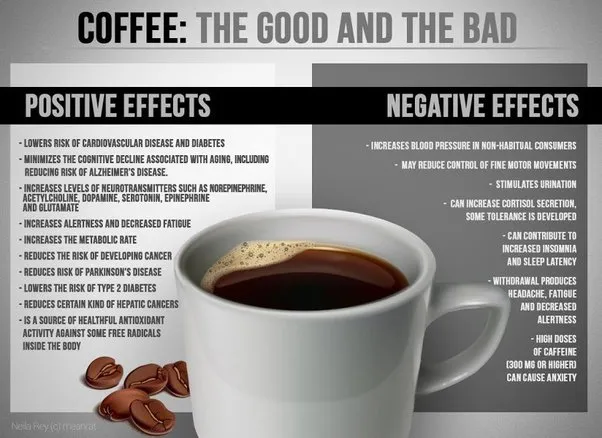Is Coffee Good or Bad for Health? Discover science-backed pros & cons, facts, FAQS, and tips to drink coffee healthily.
Introduction– Is Coffee Good or Bad for Health?
Coffee is more than just a morning ritual. It’s a global obsession.
Loved for its aroma, taste, and energising power, billions start their day with it.
But beyond the buzz, is coffee good for your health?
This article uncovers the science behind coffee’s effects on the body.
From brain health to heart risk. We break down both the perks and problems.
Health Benefits of Coffee

Rich in Antioxidants
Coffee is loaded with antioxidants like chromogenic acid and polyphenols.
These help fight free radicals that damage your cells over time.
Antioxidants also reduce inflammation and ageing-related diseases.
Studies show coffee is one of the biggest antioxidant sources in Indian diets.
That makes your cup of coffee more powerful than it seems.
Enhances Cognitive Function
Caffeine, the key ingredient in coffee, stimulates your brain.
It boosts mood, attention span, and short-term memory.
Regular drinkers have a lower risk of Alzheimer’s and Parkinson’s disease.
This is due to coffee’s anti-inflammatory effects on brain cells.
So yes, coffee can help you stay sharp longer in life.
Supports Heart Health
Surprisingly, moderate coffee drinkers (2-4 cups/day) have better heart health.
Recent studies show lower chances of stroke and heart failure.
Coffee helps reduce blood vessel stiffness and improve circulation.
It may also reduce LDL (bad cholesterol) if consumed without sugar.
Just avoid drinking too much – moderation is key.
Aids in Diabetes Prevention
Coffee can lower your chances of getting type 2 diabetes by 23-50%.
It improves insulin sensitivity and glucose metabolism.
This benefit is seen with both regular and decaf versions.
Some compounds in coffee help reduce sugar spikes after meals.
Pair it with a healthy diet for best results.
Liver Protection
Coffee protects the liver against fatty liver, cirrhosis, and even liver cancer.
Drinking 2–3 cups daily has been linked to slower liver disease progression.
It reduces liver enzymes like ALT and AST that indicate inflammation.
Coffee also helps cleanse toxins naturally through liver support.
For people with liver conditions, it may act like a natural medicine.
Potential Health Risks of Coffee
Sleep Disruption
Caffeine stays in your body for 6 to 8 hours after drinking.
That can disturb sleep, especially if taken late in the day.
It reduces deep sleep and increases night awakenings.
People with insomnia or irregular sleep should limit intake post-noon.
Switch to decaf or herbal drinks at night for better sleep.
Increased Anxiety
Too much caffeine can overstimulate your nervous system.
This may lead to jitters, irritability, or rapid heartbeat.
People with anxiety disorders are more sensitive to this effect.
Even 2–3 cups can trigger panic-like symptoms in some individuals.
If you notice restlessness, consider cutting back or switching to green tea.
Digestive Issues
Coffee can increase acid production in your stomach.
This can lead to heartburn, bloating, or acid reflux.
People with ulcers or gastritis may find coffee irritating.
Switching to cold brew or adding milk may reduce these effects.
Listening to your body is the best approach here.
Bone Health Concerns
Excess coffee (more than 4 cups/day) may reduce calcium absorption.
This can weaken bones over time and raise osteoporosis risk.
Women post-menopause should be especially cautious.
Taking calcium-rich foods or supplements offsets this effect.
So enjoy coffee, but don’t forget your dairy or alternatives.
Pregnancy Considerations
High caffeine levels during pregnancy may lead to complications.
Studies link it with low birth weight, preterm birth, and miscarriage.
Experts recommend no more than 200 mg caffeine per day (about 1–2 cups).
Switching to decaf or herbal teas is a safer option during pregnancy.
Always consult your doctor for personalised advice.
Hidden Risks of Coffee: Who Should Avoid It?
Why Coffee Might Worsen Acid Reflux
Coffee relaxes the oesophageal sphincter, triggering heartburn.
Cold brew (67% less acidic) is safer for GERD sufferers.
Add milk? It helps 40% of Indians, but worsens symptoms for lactose-intolerant folks.
Caffeine and Anxiety: A Dangerous Brew
Genetic testing (now popular in India) reveals slow caffeine metabolizers.
These individuals face 3x higher anxiety risk with >1 cup/day.
Opt for adaptogen-blended coffees (ashwagandha, tulsi) to counter jitters.
Debunking Common Myths of People
Coffee Causes Dehydration
Coffee does make you pee more, but it doesn’t dehydrate you.
Its water content still contributes to your fluid intake.
Drinking coffee in moderation does not harm hydration levels.
Just drink enough water throughout the day, too.
So you can safely include coffee in your daily routine.
Coffee Leads to Cancer
Old studies raised concerns, but new research says otherwise.
Coffee may reduce the risk of colorectal and liver cancer.
Carcinogenic worries came from over-roasted beans, not coffee itself.
Today’s roasting techniques are much safer.
Coffee is not a proven cancer risk, and may be protective instead.
Coffee Stunts Growth
This myth has been around for decades, but it’s false.
No scientific evidence links coffee to reduced height or growth.
It may delay sleep in teens, which can indirectly affect development.
But it doesn’t directly impact growth hormone or bones.
So yes, coffee is safe for teens in moderation.
Optimal Coffee Consumption
Recommended Daily Intake
Health experts suggest 2–4 cups of coffee per day for adults.
That equals around 200–400 mg of caffeine.
Going beyond 5 cups increases the risk of anxiety and heart issues.
Kids, pregnant women, and people with health conditions need less.
Stick to your limit and monitor how you feel.
Best Times to Drink Coffee
Morning (9–11 AM) is the best time for your first cup.
Avoid drinking it first thing after waking – let cortisol settle.
Afternoon energy dip (1–3 PM) is another ideal time for coffee.
Avoid caffeine after 4 PM to prevent sleep issues.
Timing can make your coffee habit healthier and more effective.
Choosing Healthier Coffee Options
Brew methods affect coffee’s health impact, too.
Filtered coffee removes compounds that raise cholesterol.
Cold brew is lower in acidity, better for sensitive stomachs.
Avoid too much sugar, flavoured syrups, or cream.
Stick to black, filter, or oat-milk coffee for a healthier choice.
Top 10 FAQS – Is Coffee Good or Bad for Health?
1. How much coffee is safe to drink daily?
Most health experts recommend 2–4 cups per day for healthy adults.
This provides benefits without risking anxiety or sleep issues.
Always listen to your body and adjust if needed.
2. Can coffee help with weight loss?
Yes, caffeine boosts metabolism and fat-burning slightly.
Black coffee is low in calories and may suppress appetite.
But results vary, and it’s not a magic weight loss drink
3. Is decaffeinated coffee healthier?
Decaf still has antioxidants and health benefits, minus the jitters.
It’s a great option for those sensitive to caffeine.
Choose water-processed decaf for the best quality.
4. Does coffee affect blood pressure?
Caffeine can cause a short-term rise in blood pressure.
However, regular coffee drinkers build tolerance over time.
People with hypertension should monitor their response closely.
5. Is coffee beneficial for mental health?
Moderate coffee intake improves mood and reduces depression risk.
It stimulates dopamine and other “feel-good” chemicals.
Too much, though, can increase anxiety in some people.
6. What are the effects of coffee on cholesterol levels?
Unfiltered coffee (like French press or espresso) can raise LDL.
Filter your coffee to reduce cafestol, the compound responsible.
The overall impact is small with normal consumption
7. Can coffee consumption lead to addiction?
Coffee can cause mild dependency due to caffeine.
Sudden withdrawal may cause headaches or fatigue.
Gradually reduce intake to avoid withdrawal symptoms
8. How does coffee interact with medications?
Coffee can affect how your body absorbs some medications.
Always check with your doctor, especially for thyroid, iron, or heart meds.
Take your medicine away from coffee time if needed.
9. Is it safe to drink coffee on an empty stomach?
Drinking coffee on an empty stomach can irritate the digestive.
It may cause acid reflux, especially in sensitive people.
Try having a small snack or breakfast with your coffee.
10. What are the environmental impacts of coffee production?
Coffee farming can lead to deforestation and water use.
Choose brands with Fair Trade or Rainforest Alliance certification.
Sustainable farming supports both the planet and farmers.
Conclusion: Is Coffee Good or Bad for Health?
Coffee is both good and bad it depends on how and how much you drink.
Moderate coffee consumption (2–4 cups/day) offers real health benefits.
From brain and heart protection to diabetes and liver support, coffee helps.
But too much can lead to anxiety, sleep problems, or stomach issues.
So the final verdict? Coffee is good for health when consumed wisely.
MUST HAVE- Heritage Health Insurance
- Banking Apps
- Best Deals
- Credit Cards
- Earning Apps
- Health Insurance
- Instant Loan Apps
- Jobs
- Life Insurance
- Trending Topic











